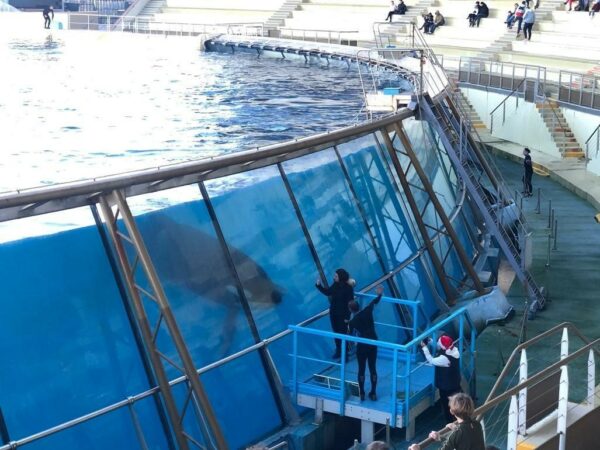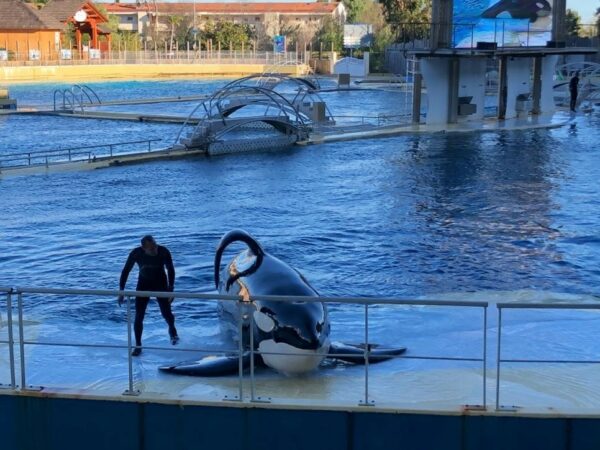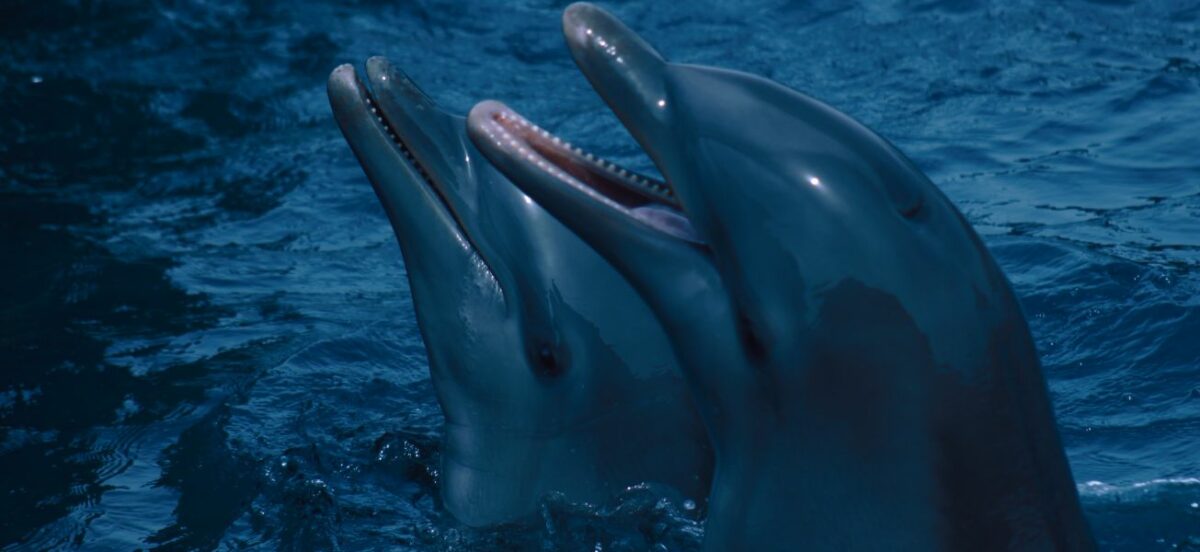No new parks will be built and the government is looking into the prospect of a sanctuary for the remaining captive dolphins.

Captive dolphins and orcas are confined to enclosures and denied the freedom to express natural behaviours. Credit: Action for Dolphins.
The ban accompanied similar legislation relating to fur farms and travelling circuses. Minister Pompili referred to the measures as “a new era” in the relationship between humans and wildlife, recognising that human entertainment is not worth the detrimental welfare implications of captivity.
These reforms are an historic win for advocacy groups and individuals worldwide who have been working to phase out this practice. Solidifying this stance at the legislative level is a crucial step towards ensuring the current generation of captive dolphins and orcas are the last.
While this legislation spares future generations of dolphins a life sentence in captivity, thousands of dolphins and whales worldwide remain in small concrete tanks where they are reduced to objects of amusement and deprived of the freedom to express natural behaviours.
Dolphins and whales are incompatible with life in captivity. These highly social, sentient, and intelligent animals have adapted to group living in the vast open ocean. Studies have found confinement in pools with little companionship or mental stimulation is not conducive to a good welfare state.
Life is often unnaturally short, and studies indicate that anxiety and depression are common. Poor physical symptoms are also frequently seen, such as chronic skin and eye irritation due to chlorinated pools.

Orca forced to perform at Marineland Aquatic Park, France. The collapsed dorsal fin- rarely seen in the wild is a common symptom in captive orcas. Credit: Action for Dolphins.
The aquarium industry has profited off human intrigue and entertainment at the expense of animal welfare for decades. But, as this recent news has shown, attitudes are changing. France is the latest of several governments to bring in a legislative ban on cetacean captivity. Canada, Greece, India, and Switzerland are also on the list. Australia is yet to follow suit.
In August this year AFD presented evidence calling for a legislative ban on captive breeding in New South Wales Parliament. We have also been working with Dolphin Marine Conservation Park in Coffs Harbour, World Animal Protection, and welfare experts and engineers to establish a sanctuary for the three remaining dolphins in captivity in NSW – Bella, Zippy, and Jet.
The latest news from France represents hope for a future where dolphin captivity is a thing of the past and people can appreciate these animals in their home instead of ours.
